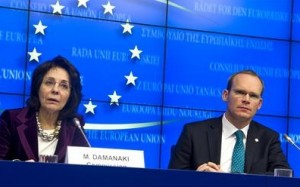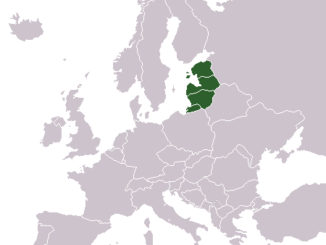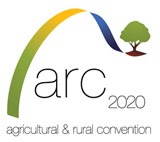Irish Agriculture Minister Simon Coveney tabled a package of measures at the Council of Agriculture Ministers on 25th and 26th February. The main focus for many was what is called ‘internal convergence. This refers to the move towards flat payments for farmers across the EU, and away from the historical reference point payments.

Minister Coveney’s compromise text suggested partial convergence by 2019 for Member States. It involves what is called approximation, or external convergence, to distribute direct payments within Member States, and a top-up on the basic payment for the first hectares of each farm “to account for the greater labour intensity on smaller farms and the economies of scale of larger farms”, the Farmers Guardian says.
Other points of note include a move from the Commission position of 40% to just 10% flat basic payment the first year – another compromise on internal convergence.
The EU Commission is in favour of flat payments, while individual Member States tend to want to bring it in their own way, to suit their own needs.
The Irish Minister was keen to state that the “Council generally endorsed the package of proposals presented by the Irish Presidency as a step towards a full Council position”. Commissioner Ciolos however said that “the derogation to allow Member States to converge towards the average by 2019 was not ambitious enough”, citing a need for minimum payments per hectare of 3/4 of the Member States average payment.
Reaction from Irish and other agriculture lobbies has been negative. They have campaigned hard for what they term active, productive farmers to be better supported in the CAP negotiations.
John Bryan, leader of Ireland’s largest farming organisation the Irish Farmers Association (IFA) said in a statement last on Thursday 28th February “from the outset, IFA has opposed Commissioner Ciolos’ proposals on flattening and regionalisation. Minister Coveney is conceding way too much in a bid to secure an EU deal in these negotiations… “the Council’s proposal’s this week are moving too far, too quickly towards a flat payment system, and unless the Minister stands up and shouts stop, irreparable damage will be imposed on Irish agriculture”.
One of the many ironies in all of this is that the EU Commission and many small rural farmers, including in Ireland, are both singing from the same hymn sheet now. The level of income redistribution in flat payment system would be very significant, and the flatter the system the more income that would be re-distributed from wealthier to disadvantaged.
“Commissioner Ciolos wants to do more to protect the family farm than our Government and the farming organisations who we pay membership fees to” Ray Glimartin chair of a young farmer’s organisation in Ireland said recently.





